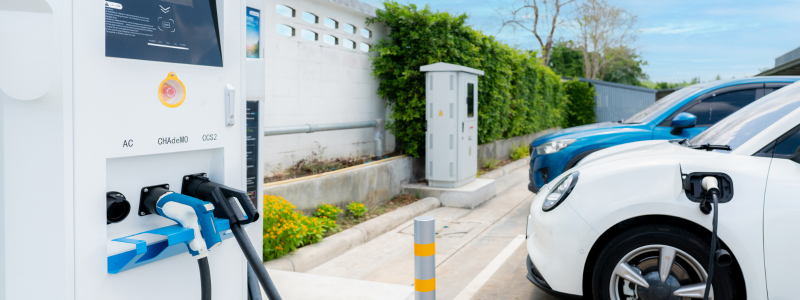UK Car Tax Changes - 2025
by Marsh Finance on Oct 31, 2024 11:27:28 AM
Key Summary
Car tax is a yearly tax that drivers have to pay if they want to use UK roads. Cars are currently taxed on how much carbon dioxide they pump into the air and their age, but this is set to change in 2025. Car tax changes are on their way, with general rates going up, plus an increase in electric car tax in the 2nd year of ownership. Electric cars will be taxed the same as petrol and diesel cars from 2025 onwards, with luxury electric cars (ones over a certain price point) facing even higher tax rates.
👉 What Is Car Tax?
👉 How Does Car Tax Work?
👉 Car Tax Changes 2025: What Are They?
👉 What Are Electric Car Tax Rates?
👉 How Much Will My Car Tax Be In 2025?
👉 Conclusion

What Is Car Tax?
Car tax is a yearly tax that drivers must pay to use the UK roads. If you fail to tax your vehicle and are spotted by police, you will likely face fines and could even have your vehicle clamped. Any car tax payments you make will go towards road work and maintenance, ensuring your tax goes to a worthy cause. Learn more about car tax by visiting our dedicated page here.
You can check your car tax by car registration with a simple Google search.
How Does Car Tax Work?
Not all cars are taxed the same. How much a car is taxed depends on things like its size, emissions, age and engine type. The two main factors that determine car tax are emissions and age. In the case of emissions, higher polluting cars are charged a larger tax to try and put people off owning high-polluting cars. In some cases, an electric vehicle didn’t need to be taxed, in a bid to attract more people to drive cleaner.
In terms of age, cars are taxed differently based on when they were registered:
- Cars older than 40 years don’t need to be taxed.
- Cars registered before 1 March 2001 will be taxed on engine size.
- Cars registered between 1 March 2001 and 1 April 2017 are taxed based on the emissions of the car.
- Cars registered on or after 1 April 2017 will see the first-year rate based on CO2 emissions, followed by a yearly rate.
- Electric vehicles don’t require drivers to pay car tax currently, however, this is changing in 2025.

What UK Car Tax Changes Are Coming In 2025?
There’s plenty of car tax changes on the way. Where electric vehicles have traditionally received a tax break, this is set to no longer be the case. As of 1 April 2025, electric and low-emission vehicle drivers will now have to pay taxes the same way as drivers of petrol and diesel vehicles. Even vehicles that are currently not being taxed could now face payment requirements moving forward. All current tax rates are subject to change in 2025 but are all likely to increase in future.

Electric Car Tax 2025
Originally, electric vehicle tax wasn't a thing. The absence of electric car tax used to be a major draw for people to switch to greener cars. From 2025 onwards, electric cars will be taxed like normal cars, a change from past years. Although guidelines could still change, it is expected that in your first year of EV ownership, you will pay around £10 electric road tax, followed by £190 from your second year onwards. However, if you opt for a luxury EV (one that’s valued from £40,000 upwards), you will pay considerably higher tax rates. With a luxury EV, you can expect to pay £410 per year from the second to fifth year of ownership. EV car tax is on the way...

How Much Will My Car Tax Be In 2025?
Car taxes are set to rise across the board, but to find your specific car tax for 2025, take a look at this free car tax calculator. The standard rate for cars from the second year of registration onwards will be £190. Car tax will be different for everyone, so to find your UK car tax in 2025, it's best to compare prices to find the best deal.
Conclusion
Car tax rates are set to increase no matter what car you drive. Car tax change is on the way. This change is felt especially in the EV space and could put people off an EV purchase in future. With this tax hike felt across the board, there’s not much you can do to save on car tax... let’s just hope they use the extra crash to fix all the potholes!
Interested in new wheels, explore financing options today!
What's the latest road tax news?
The latest road tax news is that electric vehicles will start having to pay tax as of April 1st 2025. A luxury car tax is also coming in, where cars over £40,000 will face a higher tax rate than cheaper cars.
What road tax changes are coming in 2025?
As of April 1st 2025, electric vehicles (EVs) will face tax rates. In the past, EVs have been exempt, but this is set to change. A luxury car tax is also set to come in, with cars over £40,000 charged an added tax.
What is happening to electric car tax in 2025?
Electric car tax is facing a major change in April 2025. Previously you didn't have to pay tax on EVs, but now you do. For EVs, you will pay the lowest possible vehicle tax for the first year (£10), but this will increase to £195 per year after this.
What tax band is my car by reg?
There are plenty of free sites where you can check your car tax by entering the car registration. Here are some of those sites:
- https://cartaxcheck.co.uk/car-tax-bands/
- https://www.carveto.co.uk/car-tax-calculator/
- https://www.carcheckfree.co.uk/check-car-tax
- Latest Car Updates & Advice (39)
- Car Reviews (25)
- Dealership Support (23)
- Industry Insights (21)
- Driving Test Advice (14)
- Car Insurance (8)
- Credit Score (8)
- Car Care & Maintenance (7)
- Car Tax (5)
- Christmas (3)
- Car Finance (2)
- Careers (2)
- Money Help (2)
- Company Updates (1)
- Partner Support (1)